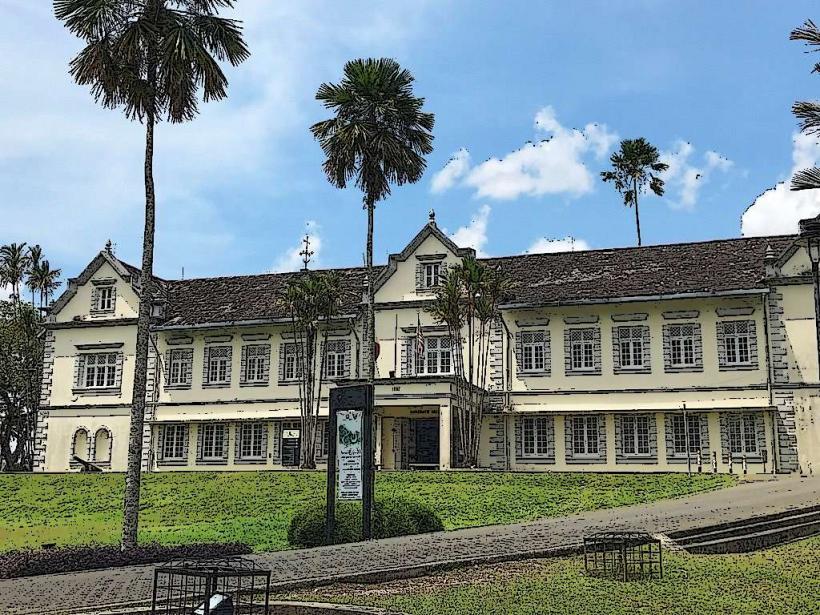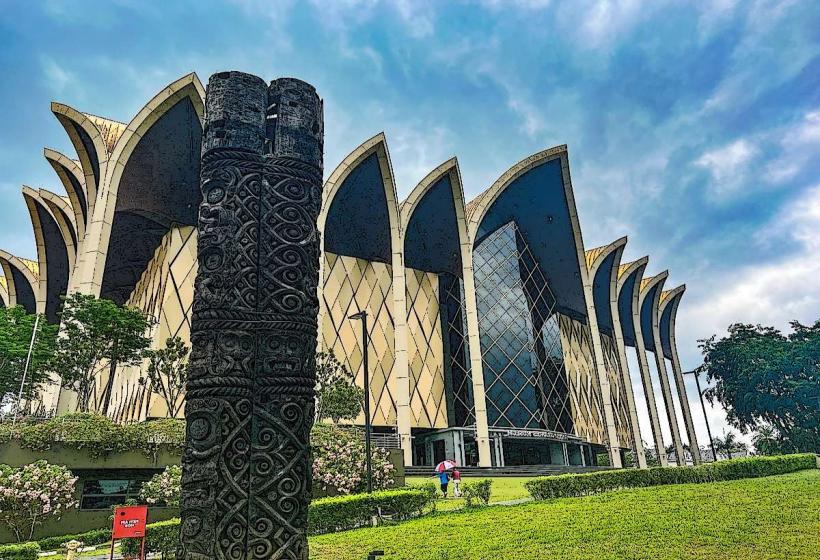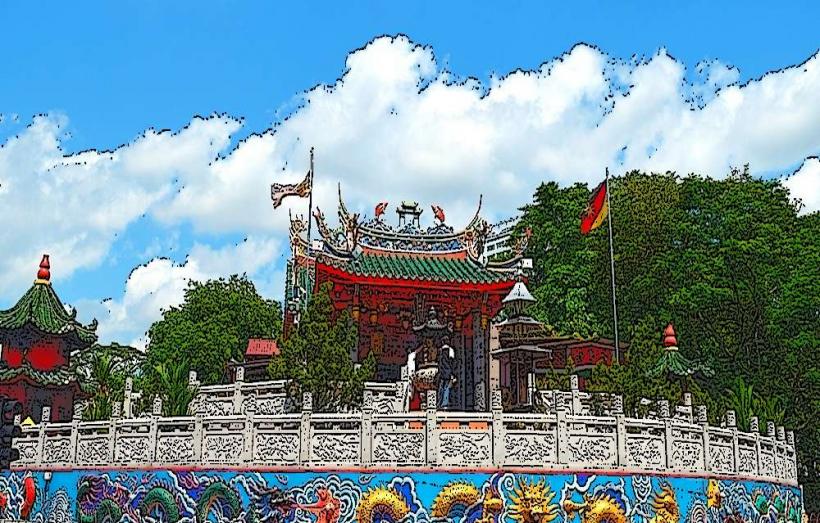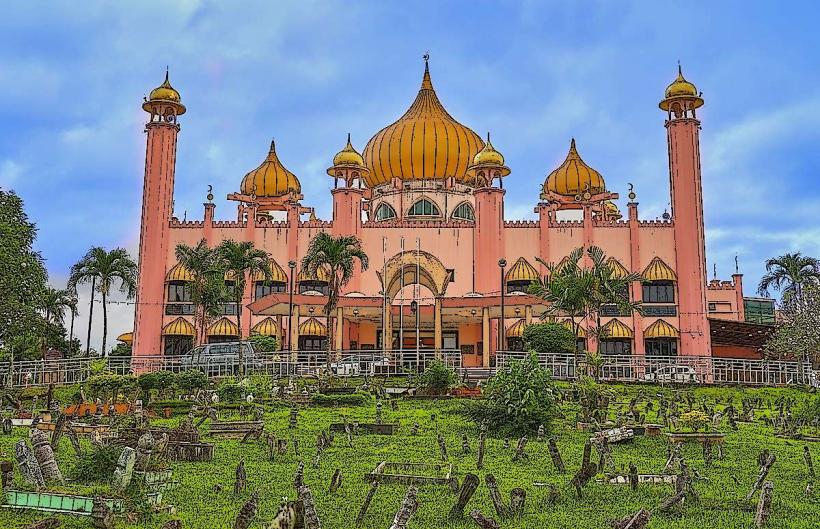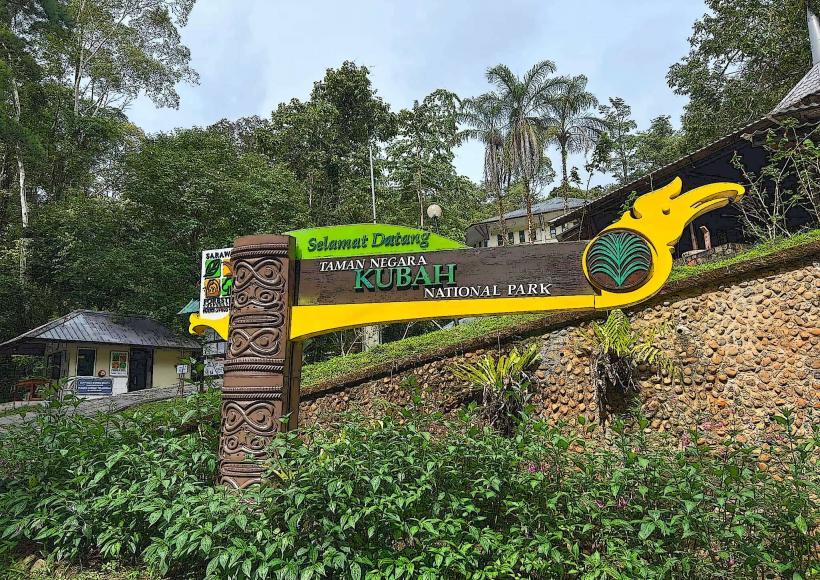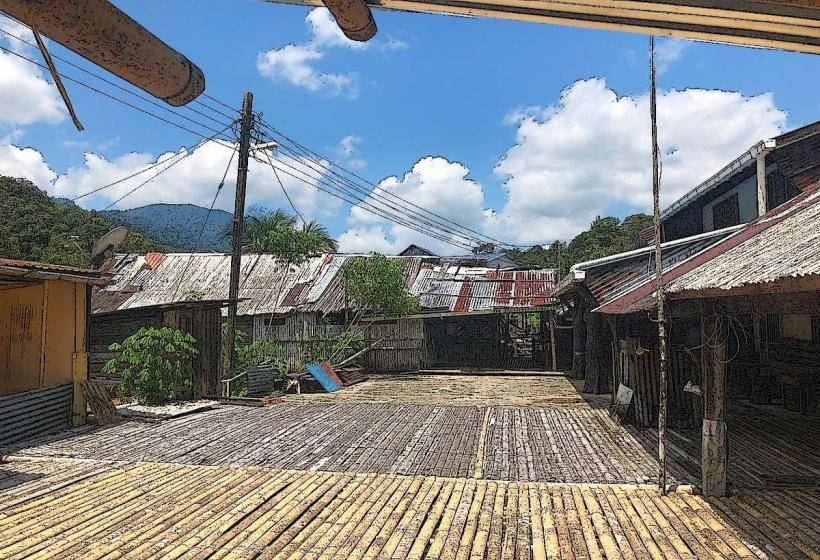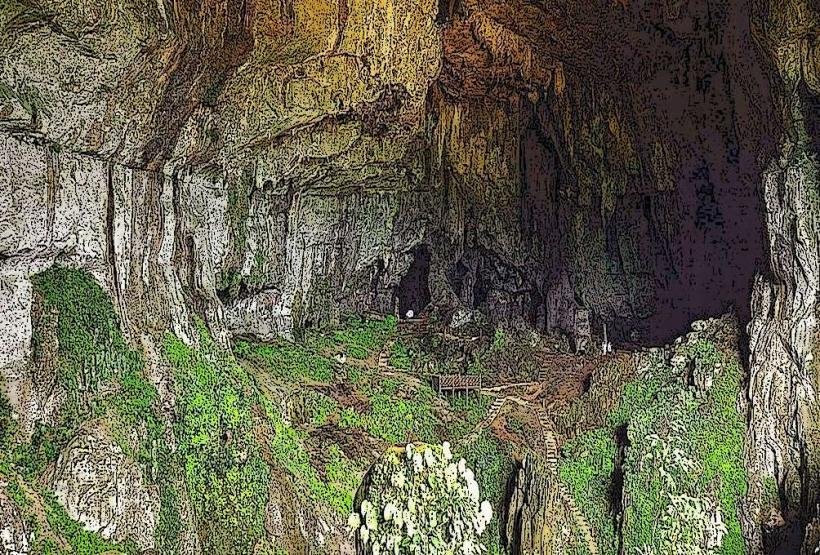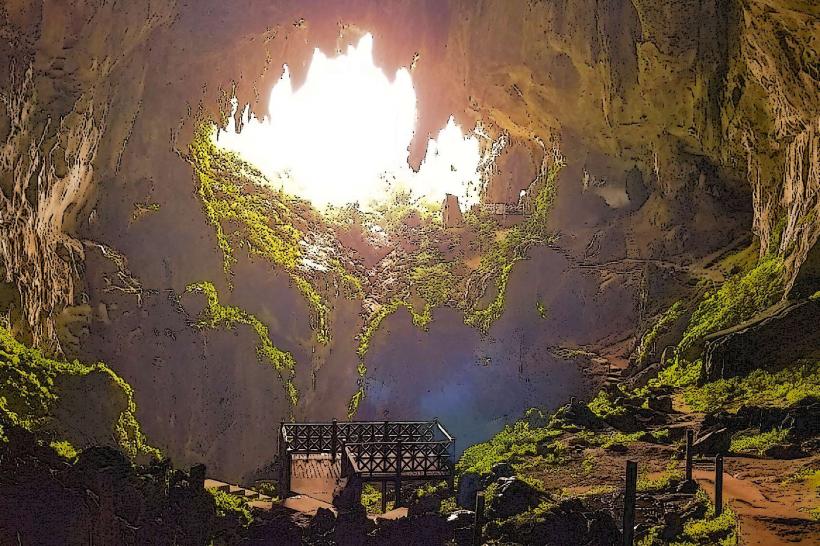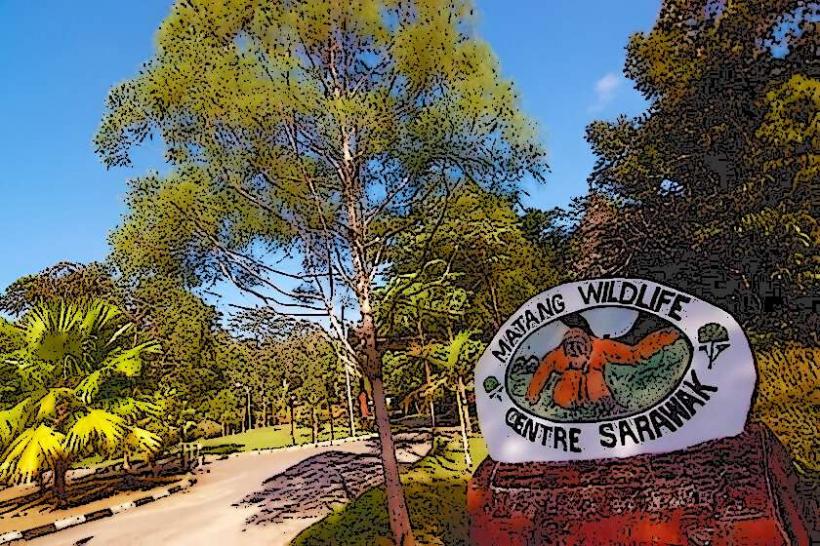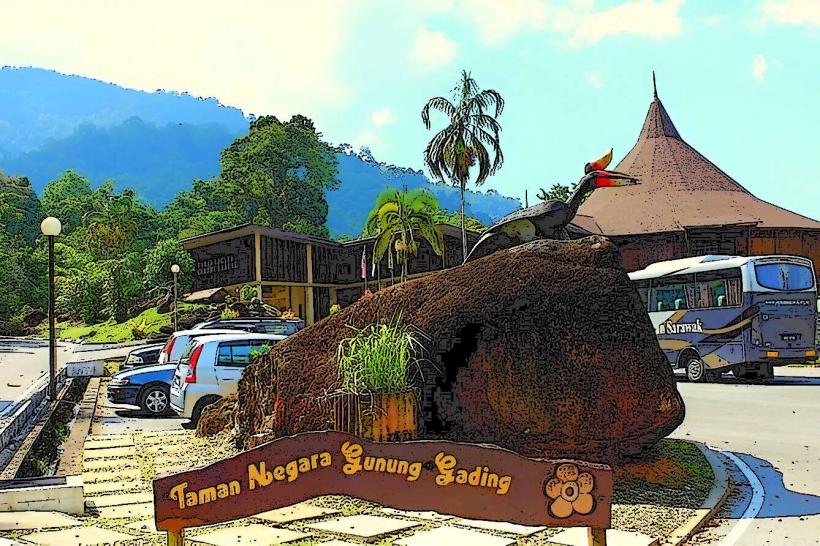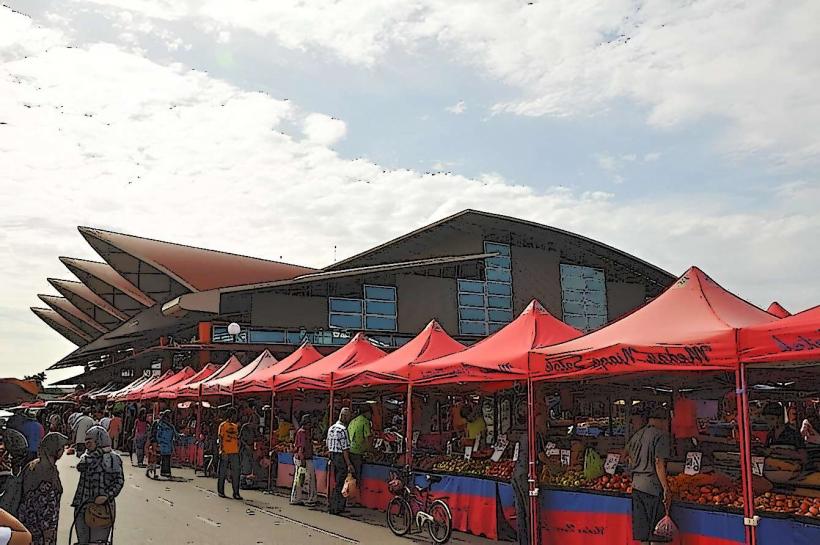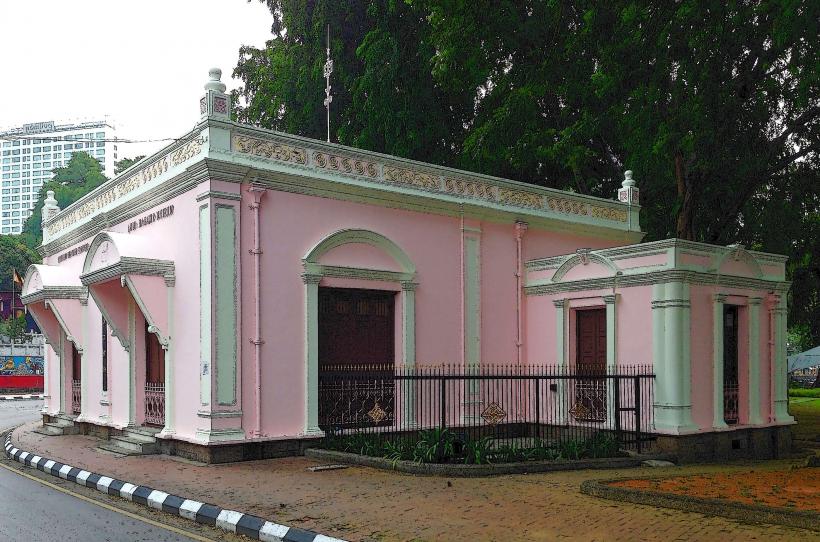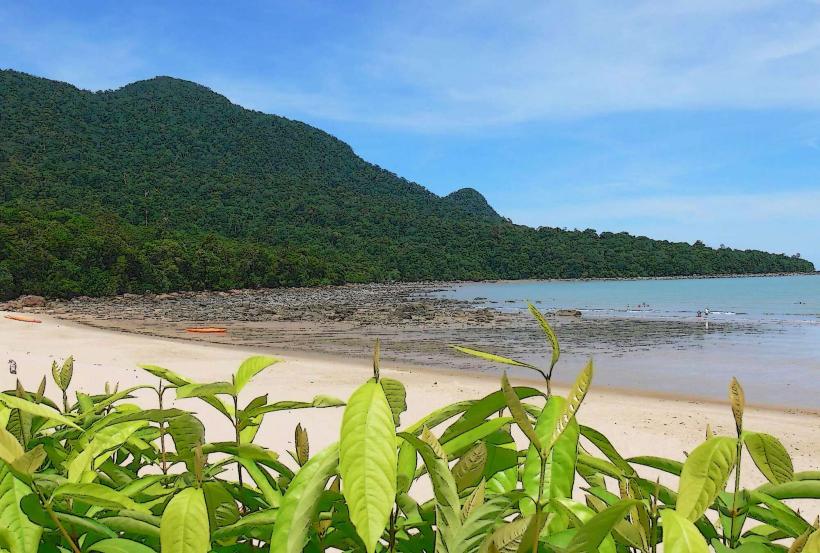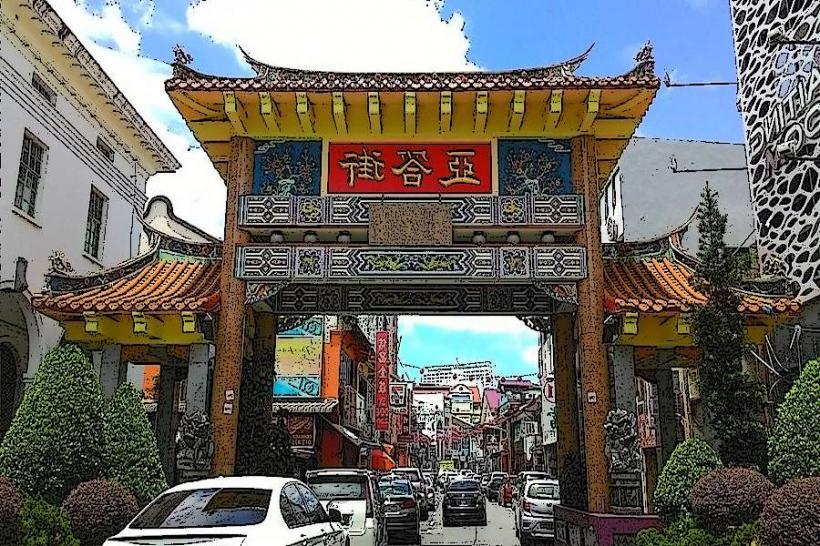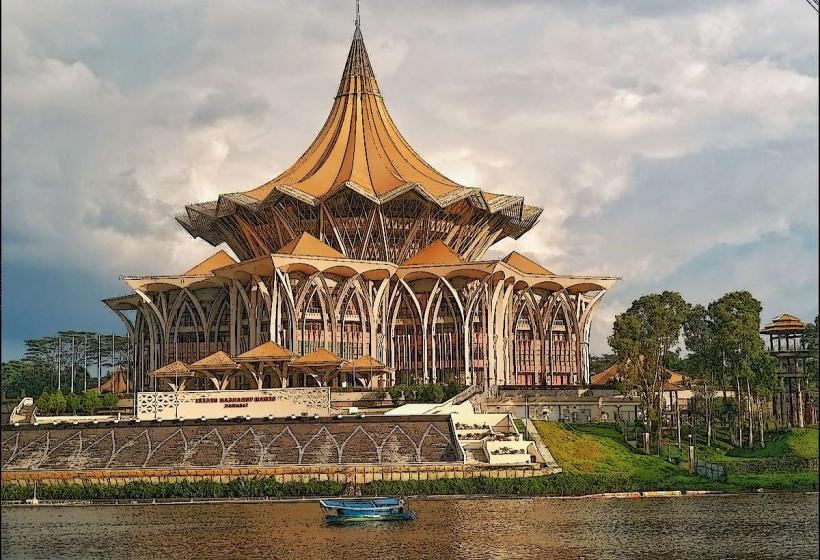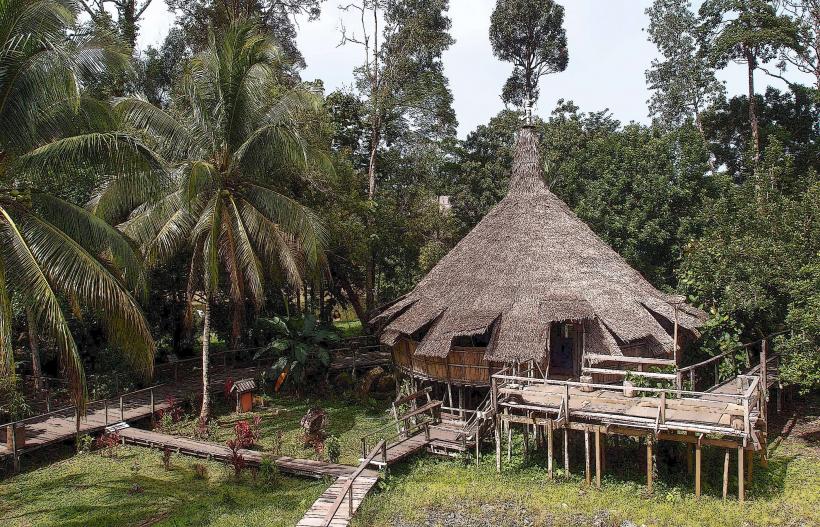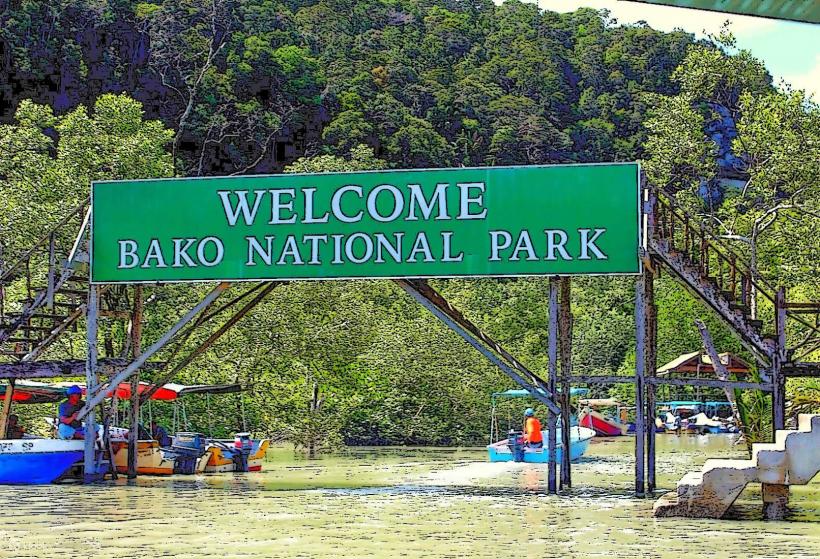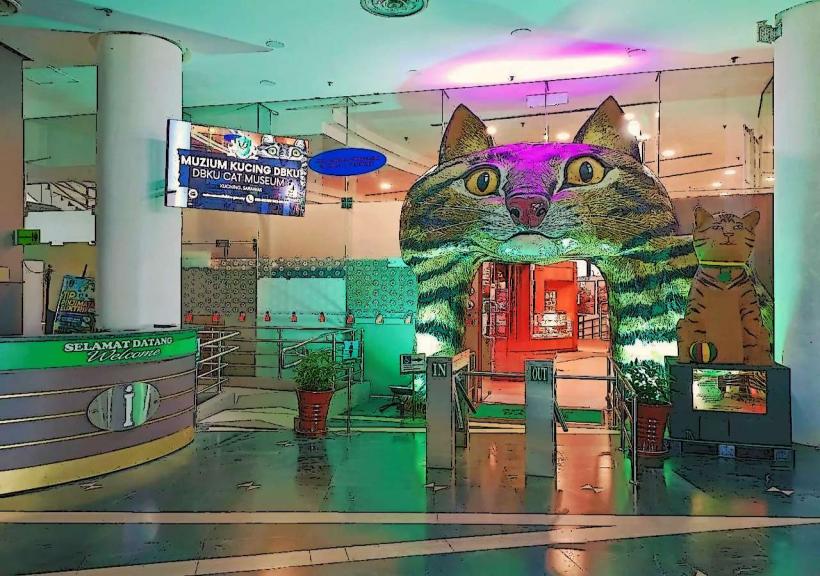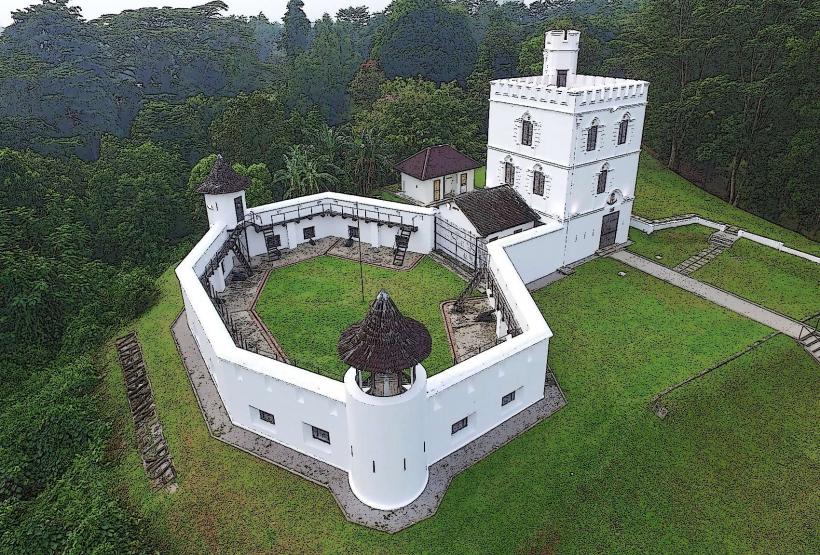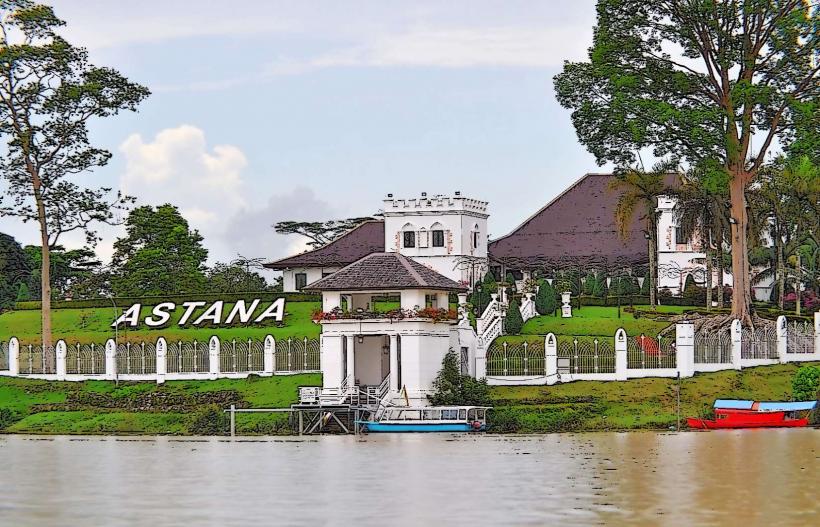Information
City: KuchingCountry: Malaysia
Continent: Asia
Kuching, Malaysia, Asia
Kuching is the capital of the Malaysian state of Sarawak, located on the island of Borneo. Known as the "City of Cats," it is situated on the banks of the Sarawak River and serves as the gateway to Borneo’s deep rainforests and indigenous heritage.
Historical Timeline
Kuching was part of the Bruneian Empire until 1841, when James Brooke, an English adventurer, was granted the territory for helping suppress a rebellion. This established the unique dynasty of the White Rajahs, who ruled Sarawak as an independent kingdom for over a century. Unlike other colonial administrations, the Brookes prioritized indigenous welfare over mass exploitation. Sarawak joined Malaysia in 1963.
Demographics & Population
The population is approximately 600,000. The demographic is exceptionally diverse and integrated, consisting of Chinese, Malays, and indigenous Dayak groups (primarily Iban, Bidayuh, and Orang Ulu). Kuching is frequently cited as the most harmonious city in Malaysia. The economy is driven by administrative services, petroleum, timber, and specialized eco-tourism.
Urban Layout & Key Districts
Kuching Waterfront: The scenic riverside promenade and historic core.
Main Bazaar: The oldest street in the city, lined with traditional shophouses and artifact stores.
Padungan: The historic Chinese quarter, known for its colonial architecture and food scene.
North Kuching (DBKU): Traditionally the Malay-dominated side of the river, housing the State Legislative Building.
South Kuching (MBKS): The administrative and commercial heart, predominantly Chinese and Dayak.
Top Landmarks
Sarawak State Legislative Assembly (DUN): An iconic, gold-roofed umbrella-shaped building on the riverbank.
Fort Margherita: An 1879 fortress built by Charles Brooke, now housing the Brooke Gallery.
Sarawak Museum: One of the finest museums in Southeast Asia, specializing in Bornean ethnography.
Cat Statues: Numerous monuments throughout the city honoring its name (kucing means "cat" in Malay).
Semenggoh Wildlife Centre: Located 20 km south; a sanctuary for semi-wild orangutans.
Transportation Network
Air: Kuching International Airport (KCH) links to major Malaysian cities and regional hubs like Singapore.
Sea: Express boats connect Kuching to coastal towns like Sibu, though road improvements have reduced their frequency.
Road: Primarily served by Grab and taxis. The Pan-Borneo Highway connects Kuching to the rest of Sarawak and Sabah.
River: Traditional Sampan (Tambang) boats ferry passengers across the Sarawak River for a nominal fee.
Safety & "Red Zones"
Nature Hazards: Do not swim in the Sarawak River or nearby estuaries due to a high population of saltwater crocodiles.
Wildlife: When trekking in nearby national parks (e.g., Bako), be wary of silver-leaf monkeys and macaques stealing belongings.
Flash Floods: During the monsoon (December–February), the riverside can experience sudden tidal flooding.
Digital & Financial Infrastructure
5G coverage is widespread in the city center. The currency is the Malaysian Ringgit (MYR). ATMs are abundant in malls and the banking district. Contactless payment via Sarawak Pay (S-Pay) and GrabPay is more common here than in many other Malaysian cities.
Climate & Air Quality
Equatorial climate. Kuching is one of the wettest cities in Malaysia, with heavy rainfall year-round. Air quality is generally pristine, though it can be affected by regional transboundary haze during the dry season (August–September).
Culture & Social Norms
Rainforest World Music Festival (RWMF): A world-renowned annual event held at the Sarawak Cultural Village in July.
Cultural Sensitivity: Kuching is socially progressive; however, respect for indigenous customs (Adat) is paramount when visiting longhouses.
Cuisine: Renowned for Sarawak Laksa (famously praised by Anthony Bourdain), Kolo Mee, and Manok Pansoh (chicken cooked in bamboo).
Local Cost Index (MYR)
1 Bowl of Sarawak Laksa: RM 7.00–RM 12.00
1 Sampan Crossing: RM 1.00–RM 2.00
1 Entry to Sarawak Cultural Village: RM 95.00
Nearby Day Trips
Bako National Park: Sarawak's oldest national park, home to proboscis monkeys and dramatic sea stacks.
Sarawak Cultural Village: A "living museum" showcasing the traditional houses of Sarawak's major ethnic groups.
Damai Beach: The city's primary coastal resort area at the foot of Mount Santubong.
Facts & Legends
Legend says the city was named when James Brooke pointed to the settlement and asked his local guide its name, just as a cat ran by; the guide replied "Kucing." A geographic fact: The Sarawak Museum houses the world's most extensive collection of Borneo-related biological and ethnographic specimens. Historically, the "White Rajahs" were so popular that when the third Rajah ceded Sarawak to the British Crown in 1946, it triggered a massive anti-cession movement that lasted for years.

